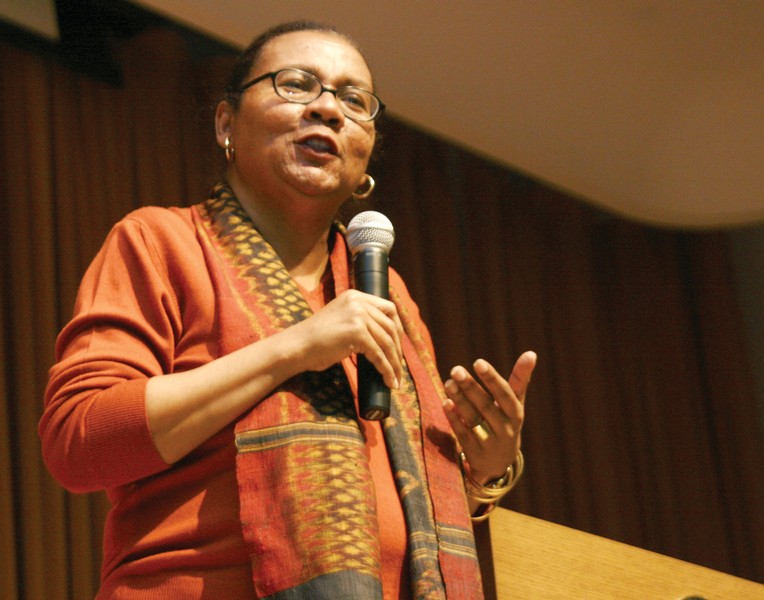San Francisco-based Gallery 16, which published a book with hooks, said, “We couldn’t believe how joyful, warm and brilliant she was. She’s a Northstar.”
Others cited specific books as part of their own personal journey. “Her book ‘Communion: The Female Search for Love’ introduced me to what love and womanhood are, it was transformative and served as a guiding light as I grew into an adult,” one person shared.
On Friday, KQED Forum’s Mina Kim spoke with Beverly Guy-Sheftall, professor at Spelman College, and john a. powell, director of UC Berkeley’s Othering and Belonging Institute and professor of law at UC Berkeley, about hooks’s life and legacy.
“She wasn’t just talking about liberation for Black people or people of color and women,” Guy-Sheftall said. “She also really focused on racial capitalism and the evils of economic hierarchies that position working class, everybody — even across color — at the bottom.”
Guy-Sheftall and hooks knew each other for over 40 years and first met at a National Women’s Studies Association conference in 1981. They bumped into each other, recalls Guy-Sheftall, and ended up sharing a dorm room. “We literally talked all night,” she said, adding that they have been talking ever since.
“One of the things I loved about bell is she critiqued these systems without confusing them with the people,” powell shared, adding that hooks talked about love as a way of getting to belonging. And she talked about accountability in the home and in community. In 2015, hooks spoke of life and death at an Othering and Belonging conference at UC Berkeley.
Both powell and Guy-Sheftall remarked on hooks’s ability to always be vulnerable, and comfortable with her own weaknesses. “She would cry in public,” powell said. This vulnerability, Guy-Sheftall said, and her willingness to talk about dysfunctionality, therapy and love, allowed people to connect to her, “like a sister or like an aunt.”
“She did this very, very comfortably and brought people in. And I think it was also her way of saying, ‘I love you,'” Guy-Sheftall said.
In one of her many notable quotes, hooks said in “Marginality As a Site of Resistance” (1990): “Marginality [is] much more than a site of deprivation. In fact I was saying just the opposite: that it is also the site of radical possibility, a space of resistance.”
Providing a close reading of this quote, powell shared how she took concepts like vulnerability and love from the margins. “She took love and … made it part of the public discourse,” he said.
During KQED’s Forum episode, one caller shared how important and relevant hooks’s 1994 book “Teaching to Transgress: Education as the Practice of Freedom” is today.
Guy-Sheftall emphasized how much bell understood the power of teachers. “In some ways, she was prophetic — because think about the ways in which now professors and people who teach about race and capitalism are being literally thrown under the bus,” she said.
With schools all across the country banning books about slavery, Guy-Sheftall said, hooks really understood that teachers have power not just to transform their classrooms, but also to transform society.
